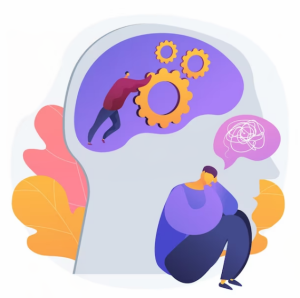1. Introduction
Schizophrenia is a complex mental disorder that affects millions of people worldwide. It is characterized by a disconnection from reality, causing significant disruptions in thoughts, emotions, and behavior. Understanding this condition is crucial to provide appropriate care and support for those affected. In this article, we will delve into the symptoms, causes, and treatment options available for schizophrenia.
2. Understanding Schizophrenia
Schizophrenia is not a “split personality” or multiple personality disorder, as commonly misunderstood. It is a brain disorder that can lead to various symptoms, impacting the individual’s ability to think logically, communicate effectively, and manage emotions.
3. Symptoms of Schizophrenia
The symptoms of schizophrenia can be categorized into positive, negative, and cognitive symptoms. Positive symptoms include hallucinations, delusions, and disorganized thinking. Negative symptoms involve social withdrawal, reduced emotional expression, and lack of motivation. Cognitive symptoms affect memory, attention, and decision-making abilities.
4. Causes of Schizophrenia
The exact cause of schizophrenia is not fully understood, but it is believed to result from a combination of genetic, environmental, and neurochemical factors. Research suggests that certain genes may increase the risk of developing schizophrenia, while environmental stressors during pregnancy and early life can also play a role.
5. Types of Schizophrenia
There are different subtypes of schizophrenia, including paranoid, disorganized, catatonic, residual, and undifferentiated schizophrenia. Each subtype presents unique characteristics and symptoms, influencing the treatment approach.
6. Diagnosing Schizophrenia
Diagnosing schizophrenia involves a comprehensive evaluation of the individual’s medical history, symptoms, and behavior. Mental health professionals use diagnostic criteria outlined in the Diagnostic and Statistical Manual of Mental Disorders (DSM-5) to make an accurate diagnosis.
7. Treatment Options
Managing schizophrenia typically involves a combination of therapies tailored to the individual’s needs. Treatment plans may include a combination of medication, psychotherapy, and psychosocial interventions.
8. Medications for Schizophrenia
Antipsychotic medications are commonly prescribed to manage the symptoms of schizophrenia. These medications help reduce hallucinations, delusions, and disorganized thinking. However, they may have side effects that need to be carefully monitored.
9. Psychotherapy
Psychotherapy, such as cognitive-behavioral therapy (CBT), can be beneficial for individuals with schizophrenia. It helps them cope with symptoms, manage stress, and improve social and communication skills.
10. Lifestyle and Coping Strategies
Maintaining a healthy lifestyle, including regular exercise, a balanced diet, and sufficient sleep, can complement treatment efforts. Additionally, learning coping strategies can empower individuals to better manage their condition.
11. Support and Rehabilitation
Support groups and rehabilitation programs can provide valuable assistance to individuals with schizophrenia. These resources offer a sense of community and help in developing essential life skills.
12. The Role of Family and Friends
The support of family and friends is instrumental in the journey of someone living with schizophrenia. Educating loved ones about the condition can foster understanding and empathy, creating a supportive environment.
13. Living with Schizophrenia
Living with schizophrenia presents challenges, but with proper management and support, individuals can lead fulfilling lives. It is essential to identify personal strengths and set realistic goals.
14. Breaking Stigma and Raising Awareness
Society’s misconceptions and stigma surrounding schizophrenia can hinder individuals from seeking help and lead to social isolation. Raising awareness and promoting understanding are crucial to create an inclusive and supportive society.
15. Conclusion
Schizophrenia is a complex mental disorder that requires a compassionate and comprehensive approach to treatment. By recognizing the symptoms, understanding the causes, and offering appropriate support, we can help individuals with schizophrenia lead meaningful lives.
FAQs – Frequently Asked Questions
- Can schizophrenia be cured completely? While there is no cure for schizophrenia, early diagnosis and proper treatment can significantly improve symptoms and overall functioning.
- Is schizophrenia hereditary? Genetics plays a role in the development of schizophrenia, but environmental factors also contribute to the risk.
- Can people with schizophrenia work or study? Yes, many individuals with schizophrenia can work or pursue educational opportunities with proper support and accommodations.
- Are all people with schizophrenia violent? No, most individuals with schizophrenia are not violent. Media portrayals often exaggerate this misconception.
- Can substance abuse cause schizophrenia? Substance abuse may exacerbate symptoms in individuals predisposed to schizophrenia, but it is not the sole cause of the disorder.


